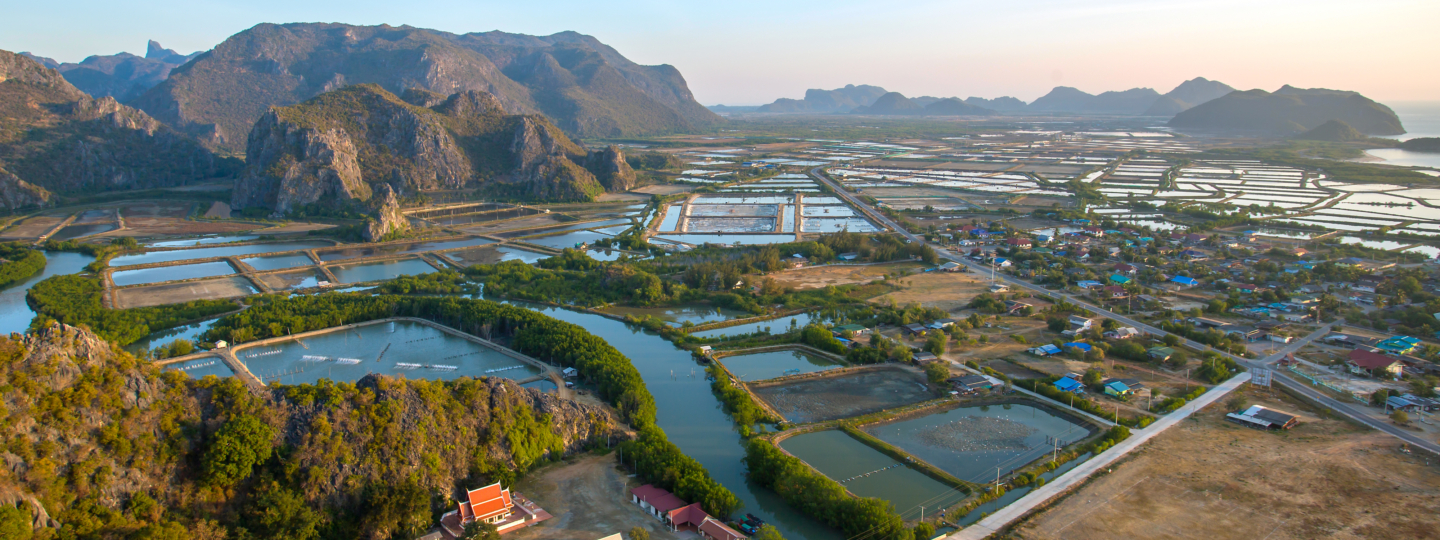healthy ecosystems
Protecting Coastal Habitats
The coast is where everything comes together.
Healthy coastal habitats are vital for both fisheries and communities. These vibrant biodiversity-rich transition zones – where the land meets the sea – provide habitats for marine species, land and resources for aquaculture development, and homes and livelihoods for coastal fishing and farming communities.
An estimated 90% of marine biodiversity lives in coastal habitats, depending on mangroves, seagrass beds, coral reefs, and other areas that provide nurseries, homes, sustenance, and shelter. Even some species that live out most of their lives in the open ocean may start out living in coastal habitats. These habitats also provide essential ecosystem functions, including carbon storage and coastal resilience to the effects of climate change.
Coastal aquaculture has long been associated with the loss of valuable coastal habitat – directly through land conversion and indirectly through pollution. However, through improved spatial planning, improved management, and protection and restoration efforts – all of which should take place at scale – coastal aquaculture can also contribute to the future resilience of coastal habitats and the vital ecosystems they provide.
For coastal communities, these habitats support livelihoods and provide a home base for launching fishing boats out to sea, raw materials, and a place to raise their families. These communities can be powerful champions of coastal habitat conservation and restoration.
The challenge
Coastal habitats face many of the same challenges as other marine and terrestrial habitats, including development, pollution, habitat loss, and destructive practices, which undermine their ecological integrity and economic resilience.
The SFP advantage
SFP helps organize and empower people involved in fishing, aquaculture, and seafood processing in coastal communities around the world to participate in local ecosystem stewardship and livelihood diversification efforts that manage and restore habitats, safeguard biodiversity, and ensure climate resilience in coastal areas. These efforts can ensure community resilience, healthier habitats, and more stable fish stocks, as well as support national policies and global goals for biodiversity and climate.
Help us protect coastal habitats
Contact SFP to learn more about our work on ecosystem aquaculture and our support for local ecosystem stewardship and livelihood diversification efforts.

